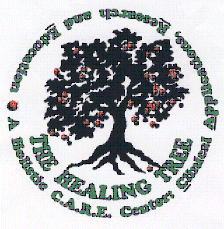|
|
The Healing Tree
|
What Causes Anxiety? by Dianne Ruth, CCH, PhD Recent research indicates that 1 in 7 people suffer from panic. Anxiety disorders weren't recognized until the mid-'80s. SOME COMMON BIOLOGICAL CAUSES of an anxiety disorder include fasting, aspirin intolerance, psychoactive drugs, unstable thyroid, blood sugar levels, or hormone production. In addition, cold medications, tranquilizers, sleeping pills, certain blood pressure medications, steroids, and even antidepressants and anxiety pills can create anxiety reactions.Intoxication from stimulants such as caffeine, cocaine, and amphetamines may produce this state. In fact, repeated cocaine use may eventually cause feelings of panic, and the terror may continue for years after the drug is stopped. Withdrawal, for example, from alcohol and sedatives may create anxiety. Heart problems, an inner ear imbalance, or a mitral valve prolapse (MVP) is often a causative condition. More rarely, certain types of brain tumors and epilepsy can be responsible for anxiety. Also, lung problems, and some forms of disease may be a factor. Other less likely possibilities include vitamin B12 deficiency, and heavy metal intoxication. SOME COMMON PSYCHOLOGICAL CAUSES for the later development of the problem, include separation anxiety or sudden loss of a loved one during childhood. A serious disruption or violence, emotional or emotional and physical in the child's family also may contribute to the problem.Other possible psychological causes for the later development of anxiety include alcoholism and/or drug abuse in the family, child abuse, a parent with an anxiety disorder, being over-protected, and excessive criticism. Also being taught to suppress negative feelings such as anger, an excessive need for approval; rigid family rules, and beliefs are additional possibilities. With the creation of any of these early patterns, often followed by another significant trauma involving loss or major life change later in life, the person may develop an anxiety-related disorder. BRAIN IMBALANCE? There is also scientific evidence that anxiety-related problems such as stress, panic, and exaggerated fears are the result of a functional imbalance between the right and left hemispheres of the brain. Positron emission tomography (PET) scans are being used to study these theories.Other research suggests that the brain chemistry is out-of-balance. Relaxation can trigger anxiety attacks in about 1 in 3 panic sufferers. It has also been observed that strenuous exercise can intensify anxiety symptoms. Inhaling modest amounts of carbon dioxide produces attacks in nearly all predisposed patients. Researchers are discovering that certain psychotherapies may be more effective than drugs at eliminating panic over the long term.
For more Free Articles, Tips, Techniques, Reports and Information, please visit Dr. Dianne Ruth's personal website: http://www.DynamicResources.net. We honor your race, religion, culture, and way of life. We welcome adults in consensual, sane and safe, alternative sexual and other lifestyles. . |
